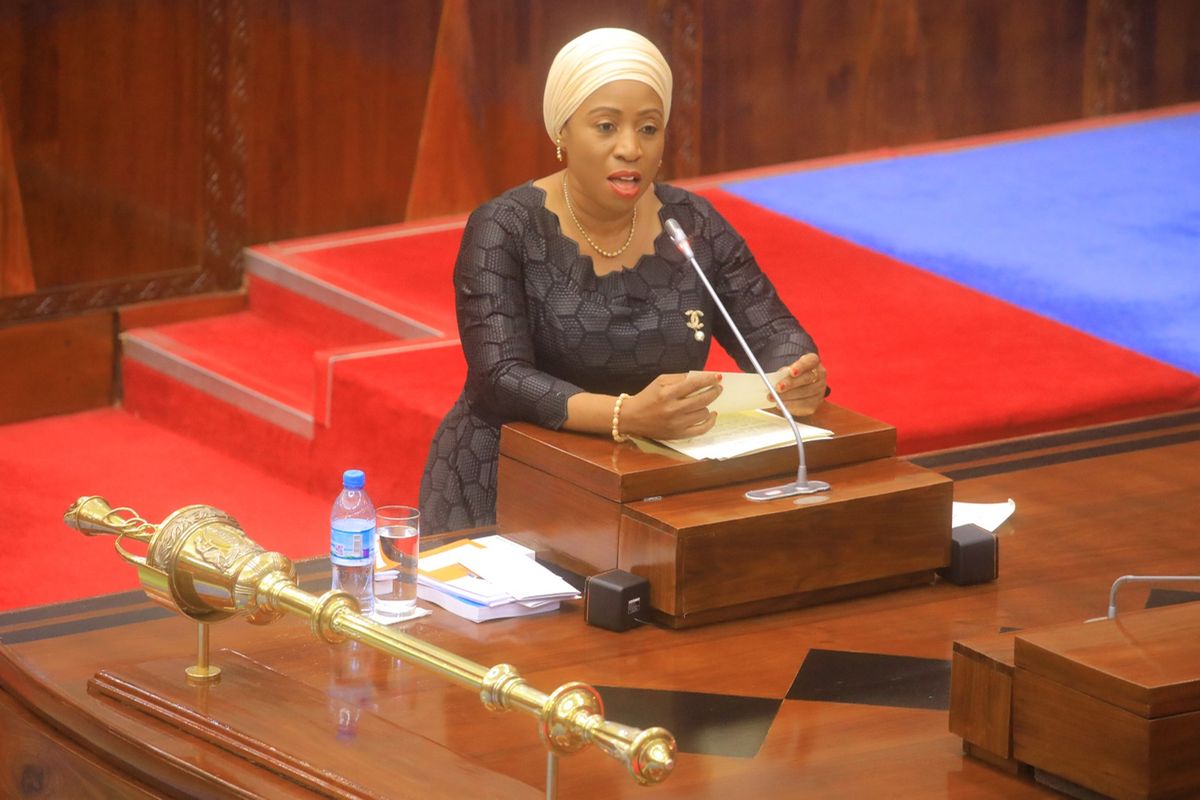Dodoma. Bunge la Tanzania limepitisha Bajeti ya Wizara ya Afya ya Sh1.31 trilioni huku Bohari ya Dawa (MSD), wakipewa Sh100 bilioni ili kuwaongezea mtaji.
Kwa muda mrefu kamati ya Kudumu ya Bunge ya Afya na Masuala ya Ukimwi, imekuwa ikilalamika kuhusu ukosefu wa mtaji kwa MSD na kuitaka Serikali iwape mtaji wa Sh561.5 bilioni ili kuboresha upatikanaji wa bidhaa za afya.
Leo jioni ya Jumatatu, Mei 13, 2024 akijibu hoja za wabunge waliochangia kwenye bajeti ya wizara yake kwa mwaka 2024/25, Waziri wa Afya, Ummy Mwalimu amesema fedha hizo zilitolewa wiki iliyopita.
“Kwa mara ya kwanza Tanzania chini ya Rais Samia Suluhu Hassan imetoa Sh100 bilioni kwa ajili ya mtaji wa MSD. Nimepata fedha hizi kutoka kwa Waziri wa Fedha wiki iliyopita,” amesema.
Amesema haijawahi kutokea katika miaka minne tangu alipoanza kuongoza wizara hiyo, Serikali kutoa fedha nyingi kama mtaji kwa MSD.
Amesema Waziri wa Fedha, Dk Mwigulu Nchemba amemweleza anaangalia kabla ya Juni 30, 2024, anaweza kutoa fedha nyingine.
Kuhusu ubora wa huduma, Ummy amesema Serikali imejenga vituo vya afya na kuwa Watanzania hawatawapima kwa vifaa tiba na majengo walioyajenga bali wanataka huduma bora za afya.
“Hiki ni kipengele cha pili katika vipaumbele vyetu (katika bajeti) tutazingatia weledi na maadili ya watumishi wa afya, nidhamu, upatikanaji wa dawa pamoja na huduma zote na hii inawezekana,”amesema.
Amesema hilo linawezekana kwa kuwa Profesa Mohammed Janabi ameweza kulifanya hilo katika Hospitali ya Taifa ya Muhimbili (MNH).
Amesema pamoja na kuongeza upatikanaji wa dawa wanaenda kuangalia usimamizi wa utoaji huduma za afya kuanzia ngazi za chini.
Amesema wanafanya mapitio ya muundo wa kamati za uendeshaji afya za mikoa, halmashauri, kuangalia muundo, majukumu na ujuzi wao ili waweze kuwasimamia kikamilifu na kuweza kuwapima.
Kuhusu posho ya kuitwa kazini, Waziri Ummy amesema ni kweli mwaka jana Serikali ilibadilisha posho nyingine, isipokuwa hiyo.
“Tumeshamuandikia Waziri wa Utumishi analifanyia kazi, madaktari tunaamini posho ya kuitwa kazini, ya kuchunguza maiti itaongezwa pamoja na sare kwa ajili ya wauguzi,” amesema.
Source: mwananchi.co.tz














